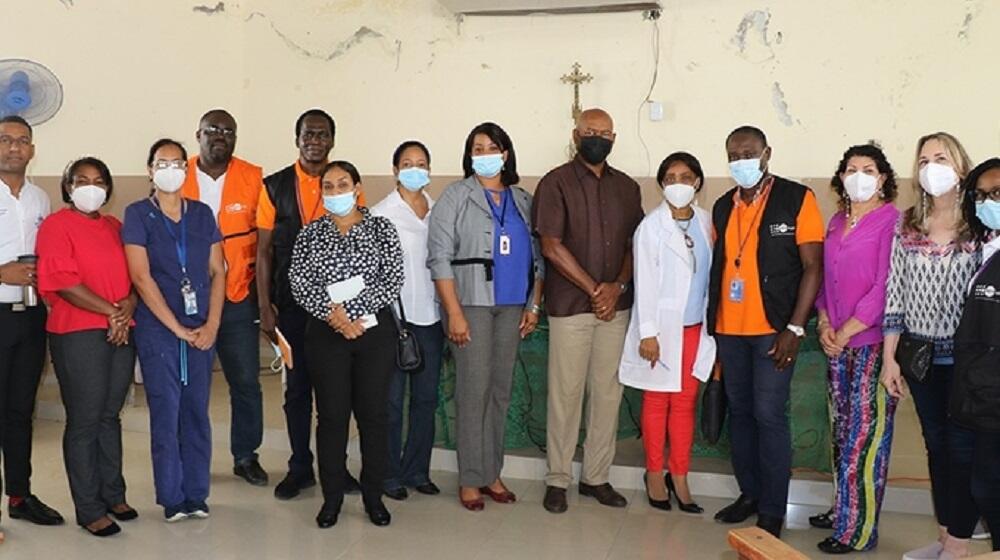Port-au-Prince, June 11, 2022 --- UNFPA Regional Director for Latin America and the Caribbean calls for an effective binational response to end preventable maternal deaths in Haiti.
Harold Robinson was speaking during a visit to the country and the Dominican Republic, from May 30 to June 3, 2022.
Places visited
This joint mission, in which participated the Representatives of UNFPA in Haiti, Saidou Kabore, and in the Dominican Republic, Sonia Vasquez, and their teams, aimed to understand the complexity of the offer of maternal health services in order to reduce maternal death along the border.
The delegation visited two of the three main points, namely Ouanaminthe-Dajabon and Anse-à-Pitre-Pedernales.
Haitians in Dominican hospitals
More than 50% of visits to Dominican hospitals are made by Haitians, UNFPA learned during a visit to one of the health institutions in Pedernales. Some reside in the Dominican Republic while others come directly from Haiti due to the weakness of the health system.
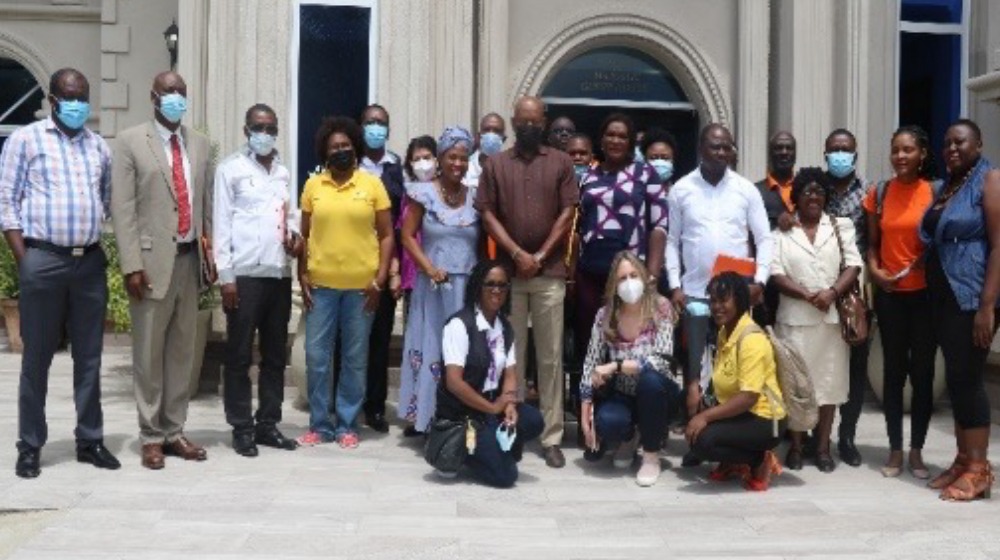
Women go to the Dominican Republic because quality maternal health care is available and supported by hospitals, according to the Northeast Departmental Health Director, Dr. Jean Denis Pierre.
Strengthening the availability and quality of services in Haiti is one of the sustainable solutions. “If on the Haitian side, we manage to offer quality services with qualified personnel guaranteeing availability and access, Haitian women will not cross the border”, believe members of civil society met.
The lack of follow-up
Haitian women arrive in the Dominican Republic without any quality prenatal follow-up and sometimes late from localities like Tilori, a locality in the department of Centre. This situation increases the maternal death rate in the Dominican Republic.
There are many teenage pregnancies and the caesarean section rate is high in the Dominican Republic, exceeding the 15% recommended by PAHO. Dominican women quite often ask for caesarean section. However, in Haiti, pregnant women are often brought against their will in exchange for money to have a caesarean section, according to members of organizations.
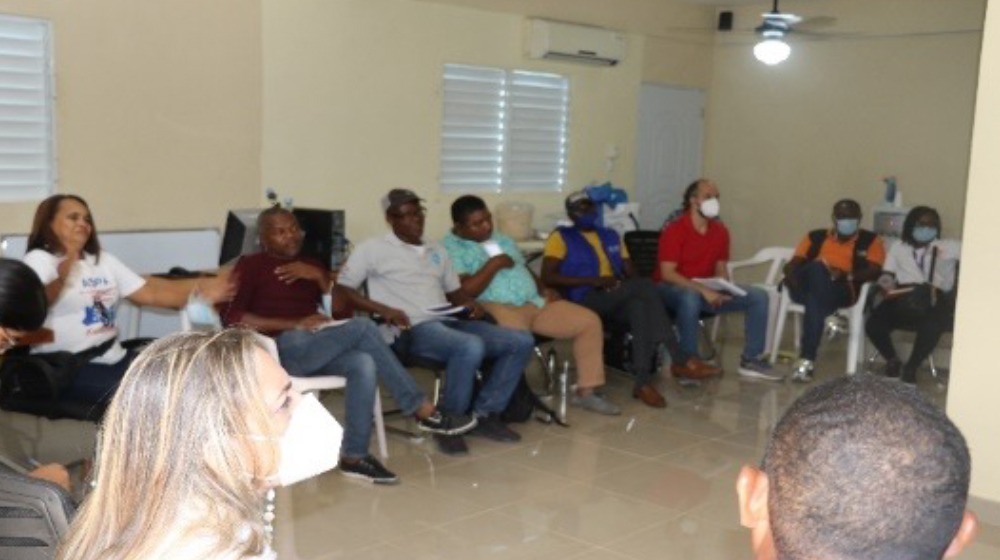
The Dominican health system
The range of services offered in the Dominican Republic is wider with specialists in internal medicine, urology, surgery, orthopedics, gynecology, pediatrics and imaging. Among the 45 doctors available in the hospital visited, 25 are specialists.
The system put in place allows Dominican specialists to offer the services. There is a referral system between the different levels of the health pyramid.
To overcome the challenges
This joint mission showed a weakness in the offer of gynecology and obstetrics services on the Haitian side while it is the opposite in the Dominican Republic.
UNFPA's support to the Haitian-Dominican border to strengthen the health system focuses on human resources, reproduction/family planning, medical equipment and staff capacity building.
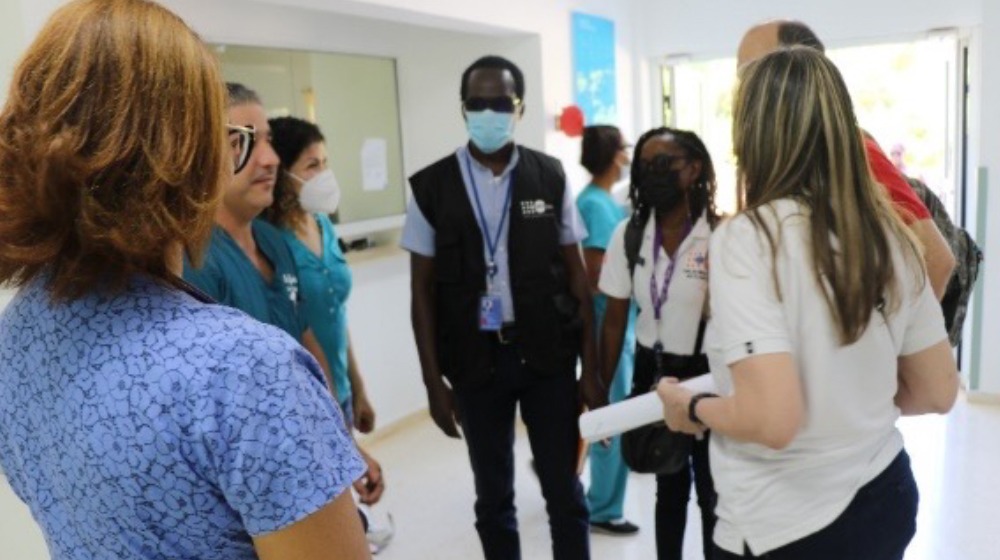
Haiti and the Dominican Republic are working together to find a binational and sustainable solution to the issue of women's access to sexual and reproductive health services, according to the UNFPA Representative in Haiti, Saidou Kabore.
We are in Pedernales and Anse-à-Pitre to reflect on the support to be provided to the Governments of Haiti and the Dominican Republic to improve maternal health, said UNFPA Representative in the Dominican Republic, Sonia Vasquez.
Solidarity between medical personnel
We must bring Dominican doctors to work a few days a week in Haiti to improve maternal health and reduce the flow of pregnant women to the Dominican Republic, according to the Association of the “Femmes Vaillantes d'Anse-à-Pitre”.
We salute the solidarity between the medical personnel of Haiti and the Dominican Republic in relation to the health of pregnant women and newborns, indicates the Departmental Director of the department “Sud-Est”, Dr. Newton Jeudi.
The delegation met, in addition to health officials, other United Nations agencies in the Dominican Republic as well as members of civil society in both countries.
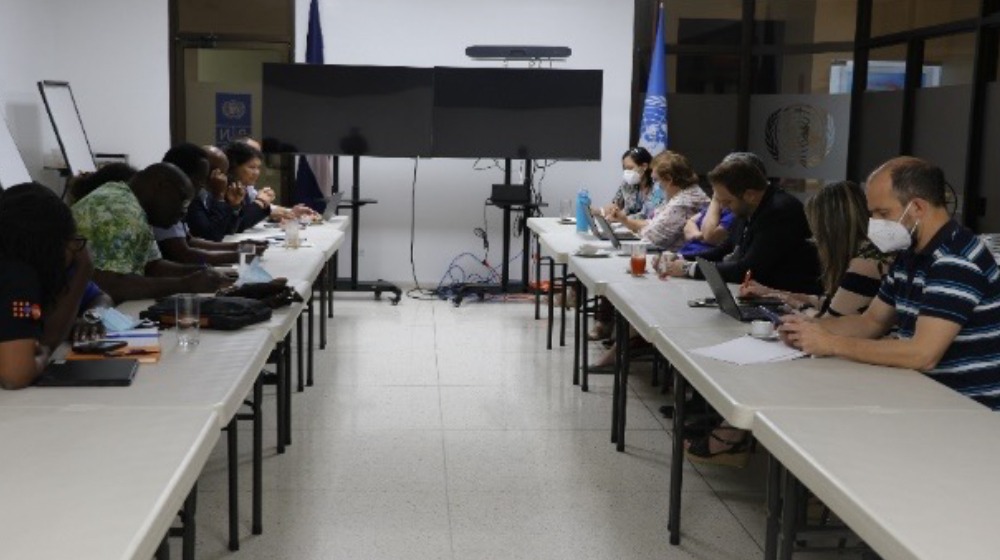
In summary
This mission provided an opportunity to discuss issues of maternal health, health in general, from pediatrics to surgery, including imaging and radiography services.
The service offer on the Haitian side deserves to be improved both in quality and quantity. Health facilities should be able to offer a wider range of services with a clear staff retention strategy.
Worrisome indicators
Maternal health indicators remain at worrying levels in Haiti. The maternal mortality rate has fallen slightly in 14 years, from 630 per 100,000 live births to 529 in 2017 (EMMUS VI). This rate is more than 7 times higher than the international average set by the Sustainable Development Goals for 2030.
The proportion of women who gave birth in the presence of skilled personnel is only 42%, while only 39% of women gave birth in a hospital structure, according to the same report.
These figures show that there are still many challenges related to access to health services for a large proportion of Haitian women, with deep geographical disparities, particularly in rural areas.
Text and photos: Vario Sérant
Texte traduit du Français à l’Anglais par :
Jhunie Laura Ganème et Michael Johnson Leger,
Officiers communautaire

